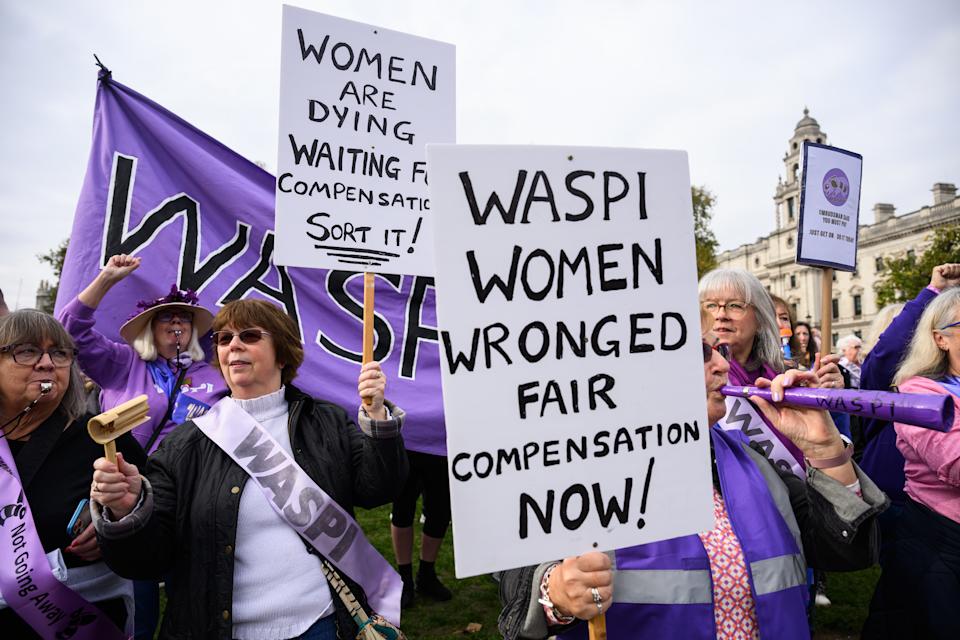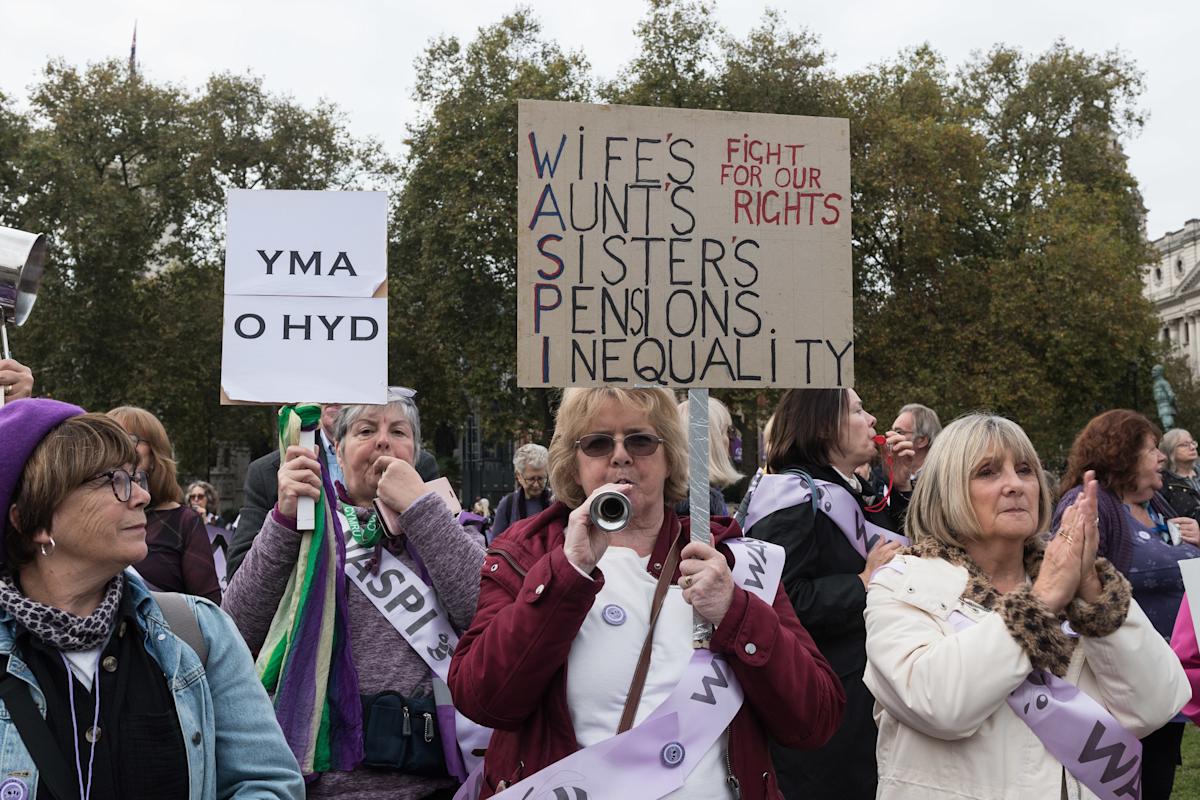Waspi women have had a major breakthrough in their campaign following a landmark High Court decision on whether they will receive compensation.
The High Court has granted an application for a judicial review, meaning that for the first time, the courts will scrutinise whether the government’s refusal to compensate the women who lost out on thousands of pounds after the state pension age for women was changed without adequate notice is legally sound.
Earlier this year, the government admitted there had been a “maladministration” in notifying the women, but drew the line at providing any financial compensation.
Angela Madden, Chair of Women Against State Pension Inequality (WASPI) told Liverpool Echo this was a “landmark moment”, adding that the government’s decision “was formed on baseless claims that will fail to stand up under scrutiny.”
The news comes nearly a decade since those affected by state pension changes set up the Women Against State Pension Inquality, or ‘Waspi’, campaign, which says women were given too little notice to plan for their retirement after the retirement age was raised from 60 to 65 in a two-year period.
Here’s what we know about the Waspi campaign, who is affected and what the women are asking for.
What happened to the Waspi women?
The first changes to the state pension age for women were announced in the 1990s.
In 1995, John Major’s government decided to change the state pension age from 60 to 65 to make it the same as men. Ministers argued that not only were more women working, but they also lived for longer.
Initially, it was planned for the state pension age to increase slowly over a decade-long window so that women could adjust their financial plans. But the 2011 Pensions Act, brought in by David Cameron’s government, drastically shortened that timetable.
Not only was the women’s pension age increased to 65 with just two years’ notice, the government also raised the overall pension age to 66 by October 2020 – saving it around £30bn.
What does Waspi mean?
The acronym Waspi was coined in 2015 by campaigners fighting for the rights of women affected by the changes. They have called on the government to agree fair and fast compensation for all women affected by the lack of notice.
Campaigners argue that hundreds of thousands of women are suffering financial hardship because of the government’s decision to accelerate the plans, which shortened the time available to re-plan their retirement.
Some women have also been pushed into financial hardship and struggled to find work elsewhere, with others claiming benefits for support.
Many women were not adequately notified of the changes, campaigners say, with some receiving letters 14 years after the initial law passed. Some said they were never notified at all.
How many Waspi women are there?
Because of the way the increases were brought in, there are an estimated 3.8 million women affected by the changes overall, with 2.6 million affected by the 2011 change.
About 300,000 women born between December 1953 and October 1954 — who were particularly close to their state pension age when the changes were announced — had the shortest time window to prepare for the changes.
Why is a judicial review important?
Following the High Court’s decision, the courts will review whether the government’s refusal to compensate Waspi victims was legal.
In doing so, Waspi campaigners feel they can finally hold the government accountable and keep the issue in the public and political spotlight, potentially leading to long-awaited redress for hundreds of thousands of women.
However, if Waspi campaigners win, the government would be required to revisit its stance on compensation, although a court victory would not automatically compel the government to pay out. Instead, the government would only be required to reconsider its decision.
How much could it cost to pay the Waspi women?
In 2018, the Parliamentary and Health Service Ombudsman (PHSO) began its investigation into the treatment of Waspi women by the government, and the impact of the changes.
The PHSO, an independent complaint handling service for complaints set up by parliament, found that affected women should have had at least 28 months’ more individual notice of the changes by the Department for Work and Pensions (DWP).
It also said that for women who were not aware of the changes, the opportunity that additional notice would have given them to adjust their retirement plans was lost due to delay.
The ombudsman rates the severity of each case it looks to on a scale of one to six. Earlier this year, it suggested that Waspi women receive compensation at level four, ranging between £1,000 and £2,950.

Waspi campaigners are calling to be fairly compensated. (Getty Images)
This level of compensation is for those who have experienced a significant and/or lasting impact because of the changes, so much so that to some extent it has affected their ability to live a relatively normal life.
However, campaigners have said that women should receive as much as £10,000 – level six of the scale. If they received the maximum amount, it would cost the government £36bn overall.
Earlier this year, work and pensions secretary Liz Truss announced the Waspi women would not be compensated.
The news left a bitter taste as the government had recently agreed to pay out those affected by the infected blood scandal by £11.8bn, and also pay out £1.8bn to victims of the Post Office Horizon scandal, in addition to the £289m it has previously paid.
